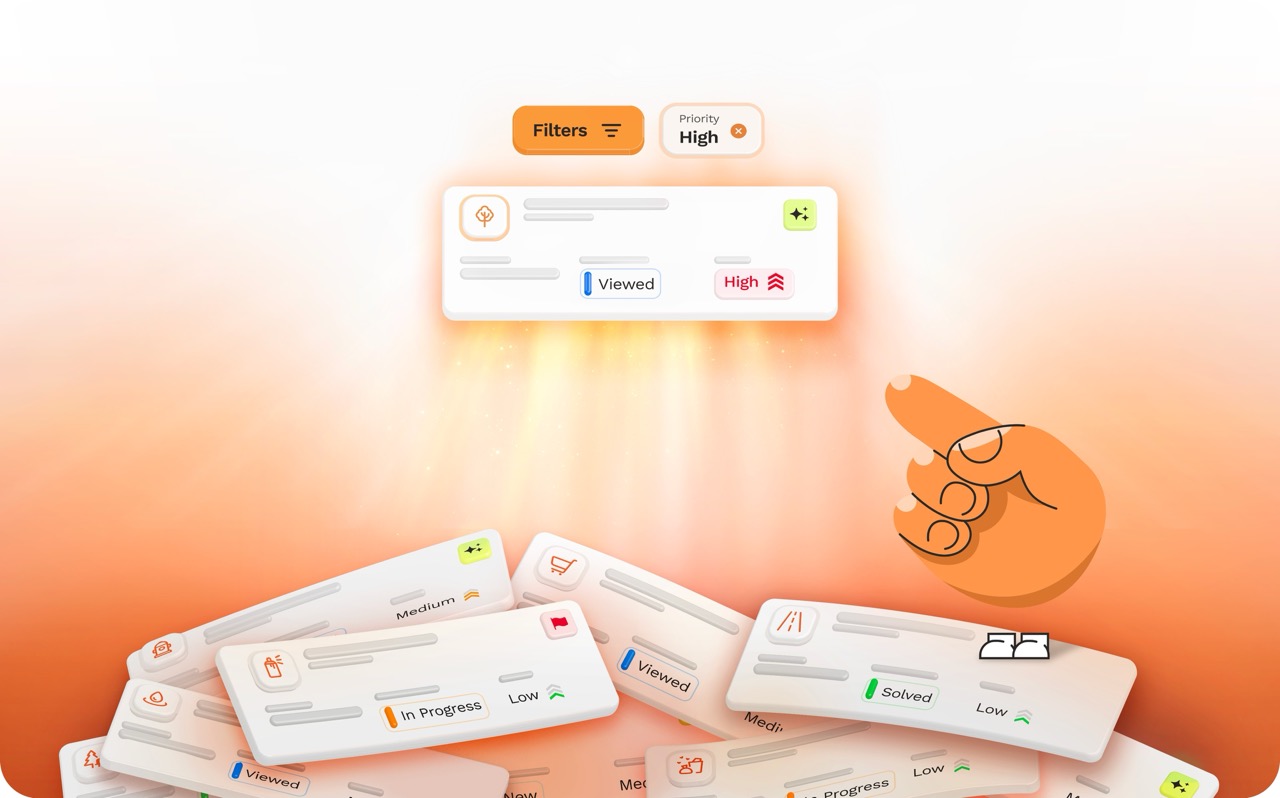Precision asset-based reporting for faster resolutions
%2520(1).png)
Bring pinpoint accuracy to community-sourced reports.
Location-based reporting keeps communities connected, but linking reports to specific assets can help streamline internal triage and boost resolution times.
Snap Send Solve's asset-based reporting feature links community reports directly to registered assets, helping you Solve issues faster, streamline maintenance, and improve service delivery.

Enhancing reporting with asset precision
Street addresses and location pins are highly effective for reporting most community issues.
But for some asset types; like drinking fountains, toilets, playground equipment, or parking meters, usual location-based reports require extra steps to identify which exact asset needs attention and route to the right maintenance team.
Asset-based reporting sets your important public infrastructure up for success by adding structured and precise data to help your teams respond faster and more accurately.
Asset-based reporting bridges this gap in two ways:
Asset-based reporting gives you a clear history of every report linked to each asset, making it easier to track issues, spot patterns and plan maintenance.
There are two ways to get started:
Asset matching by location
Getting started is simple, just upload your asset register into the Snap Send Solve Portal.
When a report is submitted near a registered asset with the corresponding incident type, we automatically match it to the closest one, no QR code required.
You can also customise the matching radius to suit different environments and asset types.

See it in action:
Australia Post used asset matching to improve how field staff report the condition of post boxes, a task that was previously manual and inconsistent.
Reports are now automatically linked to the nearest known asset, giving the team a clear view of asset history and performance without additional admin or setup in the field.
QR code reporting
Place asset-specific QR codes on key infrastructure like park amenities, parking meters or drinking fountains.
When someone scans the QR code, the report automatically links to that specific asset, eliminating guesswork and confusion.
Because each QR code is tied to a known asset, you control the address shown in the report and logged in your CRM. Ensuring consistent language and location references that align with how your works teams identify assets, even in complex environments.

See it in action:
Glen Eira City Council rolled out QR codes on key community assets like rubbish bins and public toilets.
Almost half of QR code reports came from people who wouldn’t have otherwise reported, giving council teams greater visibility into issues that previously went unreported.
Asset reports are set up with reduced manual triage time and with more structure and accuracy, works teams can focus on service delivery.
Real-world results with asset-based reporting
Smarter playground maintenance at Hume City Council
Hume City Council introduced QR codes at 50 playground entrances to make it easier for residents to report damaged or unsafe equipment, no app download required.
The result? Reports were completed 37% faster, and close rates lifted by 20%, giving maintenance teams verified, asset-linked reports ready for action.
Learn more about how Hume City Council did it.
Cutting call volumes at Frankston City Council
Each morning, Frankston City Council faced a wave of phone calls about faulty parking meters, a process that was time-consuming, prone to errors, and slowed response times.
By introducing QR codes on meters, they gave the community a faster way to report issues, and gave their teams reports linked to exact assets, ready to action.












Ready to make reporting smarter?
See how asset-based reporting can help your organisation lift resolution rates, improve community engagement, and deliver faster, more accurate service.


